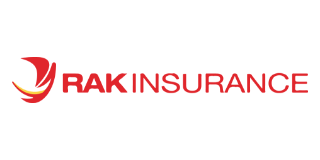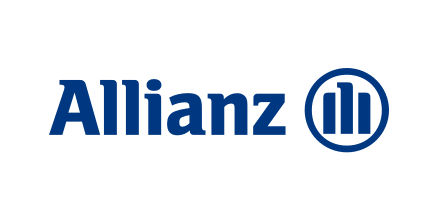800 800 001
Health Insurance for Heart Patients
In 2024, cardiovascular disease (CVD) continues to be a major global health crisis, accounting for 32% of all deaths worldwide.
Health Insurance UAE Plans















The situation in the UAE is even more alarming, as more than half of heart attack patients are under the age of 50. Health experts point to obesity, sedentary lifestyles, and smoking as key contributors to this trend.
The increasing number of younger patients suffering from heart attacks highlights the importance of being aware and taking preventive measures. Many people are now realising the need for protection and are turning to health insurance that covers heart attacks (popularly referred to as ‘heart attack insurance’) to ensure they are covered in case of emergencies.
Let’s explore the details of heart attack insurance – how it works, its top features, and why it’s essential for your safety.
What is Health Insurance for Heart Attack?
Heart attack insurance refers to coverage provided under a comprehensive health insurance policy that includes protection for heart-related medical emergencies.
Important: In the UAE, there isn't a specific insurance plan solely for heart attacks. Instead, comprehensive health plans offer coverage for such critical heart conditions. These plans cover pre-existing conditions and chronic illnesses, which can include heart disease or the risk of heart attacks.
When purchasing a comprehensive health insurance plan, it’s important to review the policy details carefully. Every plan has a maximum coverage limit, i.e. there is a cap on how much the insurer will pay in case of a heart-related emergency, including heart attacks. This limit varies by policy — understanding it is important for ensuring adequate protection in times of need.
Most comprehensive plans in the UAE cover the cost of hospitalisation, surgeries, and post-operative care related to heart conditions. However, it’s essential to check whether your plan includes coverage for long-term management of heart disease such as medications or rehabilitation.
Listen Our Podcast: Heart to Heart - All You Need to Know About Heart Health |
Features and Benefits of Medical Insurance for Heart Attack
As mentioned earlier, what is commonly known as ‘heart attack insurance’ is often part of a comprehensive health insurance plan, offering a range of benefits that cover the costs of treatment and recovery.
Given below are the key features and benefits you can expect when choosing a policy that includes heart attack coverage —
Cashless Hospitalisation
One of the primary advantages of this insurance type is the cashless hospitalisation benefit.
In the UAE, many insurers have tie-ups with a network of hospitals, allowing you to receive treatment without paying upfront. Once admitted, the hospital coordinates directly with your insurer so that your medical bills are covered up to the policy’s limit. This relieves you from the burden of handling large payments during a medical emergency.
Inpatient & Outpatient Coverage
Comprehensive health insurance for heart attacks usually covers both inpatient (hospital stay) and outpatient (consultations, tests and follow-ups) services.
Inpatient care includes hospitalisation, surgeries, and intensive care services for heart attack treatment. Outpatient services, meanwhile, cover consultations and diagnostic tests, helping you monitor your condition after a hospital discharge.
Full Claim Assistance
Insurance policies often provide full claim assistance services to confirm that you receive the benefits you're entitled to. From documentation to reimbursement, insurers assist with the entire claim process.
This support is essential during a stressful time, as it eliminates the confusion and paperwork often associated with filing a claim. In the case of heart attacks, claim assistance helps you quickly access the treatments needed without financial delays.
Emergency Treatment Coverage
Heart attacks are sudden and life-threatening, which makes immediate medical attention essential. Heart attack insurance makes sure that emergency treatment costs are covered, including ambulance services, emergency room visits, and immediate medical intervention.
Pre- and Post-Hospitalisation Coverage
Comprehensive medical insurance plans generally offer coverage for expenses incurred before and after hospitalisation. This includes doctor consultations, diagnostic tests, and medication prescribed before the hospitalisation as part of pre-treatment. Similarly, post-hospitalisation benefits cover follow-up visits, rehabilitation, medications, and therapy.

What is Included in Heart Attack Insurance?
When you choose heart attack insurance as part of a comprehensive health plan, it includes various medical services to help you during and after a heart attack. Here’s a breakdown of the essential inclusions —
- All Tests
Insurance for heart patients usually covers diagnostic tests like ECG, blood tests, angiograms, and stress tests, which are important for identifying heart conditions. These tests are often covered under both inpatient and outpatient services, depending on the policy. The coverage assists in getting the right diagnosis without worrying about the financial burden. - Medical Equipment
Many comprehensive health insurance for heart attack plans include coverage for essential medical equipment such as pacemakers, stents, or oxygen support devices. These devices manage heart conditions and help in recovery. While some insurers may cover these fully, others might have partial coverage. For this reason, it’s important to check your policy details. - Prosthetic Devices (Internal/External)
In some cases, medical insurance for heart attack covers both internal and external prosthetic devices required for recovery. For example, internal devices like heart valves or external support systems may be included in your policy (as per the insurer). Always review this aspect carefully, as coverage can vary significantly between providers. - Outpatient (OP) Visits
Outpatient visits are an important part of post-heart attack care. These visits cover regular consultations, follow-ups, and diagnostic tests, all of which are essential for monitoring your condition. - Inpatient (IP) Coverage
Hospitalisation, surgeries, and intensive care required during a heart attack are covered under the inpatient coverage aspect of health insurance for heart attacks. This confirms that all critical treatments, including surgical procedures like angioplasty or bypass surgery, are taken care of under your heart attack insurance plan. - Companion Accommodation
Some health policies also cover the accommodation expenses for a companion who stays with you during hospitalisation. This benefit keeps your loved ones near you without incurring extra costs, which is especially important during long hospital stays. - Medication
Medications prescribed during and after a heart attack — blood thinners, beta-blockers, and other heart-related drugs — are generally covered under the plan. Depending on your insurer, this might include both short-term and long-term medications for managing heart disease.
What is Not Included in Health Insurance for Heart Patients?
While heart attack insurance provides comprehensive coverage for many aspects of heart-related emergencies, certain exclusions apply. Listed below are some common exclusions in health insurance for heart attacks —
- Birth Defects
Most health policies, including insurance for heart patients, don’t cover congenital heart defects or other birth-related heart conditions. This exclusion means that any medical expenses arising from heart conditions present at birth are generally not eligible for coverage. Such conditions usually require separate or specialised insurance plans (if available). - Cosmetic or Elective Surgeries
Any surgeries or treatments deemed cosmetic or elective, which are not directly related to treating a heart attack or managing heart disease, are excluded. For instance, if a procedure does not have a direct medical necessity for heart health, the insurer will not cover it under your heart attack insurance. - Pre-existing Conditions (Without Disclosure)
If you have a pre-existing heart condition and fail to disclose it at the time of purchasing your health insurance for heart attacks, your insurer may reject claims related to heart attack treatment. To avoid such issues, always ensure that all pre-existing conditions are properly disclosed to avoid this exclusion. - Treatment for Self-inflicted Injuries
Any heart conditions or medical emergencies that arise due to self-inflicted harm, including attempted suicide or drug abuse, are generally not covered under insurance for heart patients. This exclusion helps insurers avoid claims related to personal actions that directly impact health. - Experimental Treatments
Health insurance policies, including those for heart attack coverage, don’t cover experimental or unapproved treatments. This includes any treatments that are not recognised by medical authorities or are still under clinical trials. If you opt for a treatment that falls into this category, it would be out-of-pocket. - Waiting Period for Critical Illness
Many heart attack insurance policies have a waiting period (often 6 months) to become active. If a heart attack occurs during this waiting period, the policy may not cover the expenses related to it.
Why is Declaring Health Disease Important in Your Health Insurance Form?
When applying for health insurance for heart attacks or any comprehensive medical plan, one of the most crucial steps is to declare any pre-existing health conditions. Failing to do so can lead to serious consequences, including the suspension of your policy.
Here’s why this is essential —
- Insurance companies base their coverage and premiums on your medical history. If you don’t declare a pre-existing condition—such as high blood pressure, diabetes, or a prior heart condition — the insurer may deem it a violation of the policy terms. In such cases, the company has the right to suspend your policy, which means your insurance becomes invalid. Additionally, claims related to heart disease or other health conditions will not be reimbursed, leaving you financially exposed in times of need.
- Declaring a pre-existing condition helps the insurer accurately assess your risk and provide suitable coverage. While premiums may be higher for those with pre-existing conditions, the security of knowing you are covered far outweighs the risk of claim rejection. Insurers can even provide insurance for heart patients so that your heart-related treatments are covered.
Note: It is always advisable to be transparent about your medical history to avoid any future complications. This guarantees that you can rely on your health insurance for financial support without hurdles in case of a heart attack or any other serious condition.
Always consult with an insurance expert to understand how your condition affects your policy and what coverage is available to you.

Top Heart Attack Insurance Plans in the UAE
Some of the top health insurance plans covering heart attack along with their sub-limit are tabled below —
|
Heart Attack Insurance Plans |
Sub-Limit (AED) |
|---|---|
|
ADNIC Gold |
2,00,000 |
|
Takaful Emarat Silver Premium |
1,000,000 |
|
Adamjee Silver Premium |
1,000,000 |
|
HAYAH Tier (5) (Worldwide) MEDnet Gold |
2,000,000 |
|
Orient Gold - Family Care |
1,000,000 |
Disclaimer: The plans mentioned are not exhaustive. The specifics can vary, and there are multiple options to suit different needs. For a more comprehensive list of plans, visit policybazaar.ae or contact our customer service team to help you find the best insurance policy tailored to your requirements.
Why Should You Buy Insurance for Heart Patients?
- Heart conditions often lead to other complications like hypertension or diabetes, which can worsen over time. A comprehensive health insurance plan covers all related treatments and procedures and minimises out-of-pocket expenses.
- Many health plans offer preventive check-ups and diagnostic tests, which help in the early detection of heart issues. This avoids major health problems and ensures timely intervention, reducing long-term medical costs.
- Some policies come with the option of lifelong renewability, which is critical as heart conditions and health needs evolve with age. This feature provides you coverage throughout your life without the worry of policy expiration due to age.
- With a good insurance plan, you can access top-tier hospitals and specialised medical care.
- Health insurance not only covers immediate hospitalisation costs but also extends to post-hospitalisation expenses like medication and rehabilitation. This reduces the financial burden during recovery — you can focus on getting better without worrying about expenses.
How to Buy Health Insurance That Covers Heart Attack in the UAE?
Purchasing heart attack insurance through Policybazaar.ae is quick and convenient.
Policybazaar UAE offers multiple health insurance plans from top-notch insurers, which gives you a range of options to choose from. With over 22,000 Google reviews and a 4.6-star rating, this platform is trusted for its easy-to-use interface and excellent customer service. It connects you with reputable insurers so that you find the right policy tailored to your needs.
Here’s a step-by-step guide to buying health insurance for heart attacks on Policybazaar.ae —
- On the official website of Policybazaar.ae, go to the "Health Insurance" section on the homepage.
- Fill out the lead form with your details, such as age, gender, and coverage requirements.
- A pop-up will appear asking if you have any pre-existing conditions. Select the "heart" option if applicable.
- Once completed, you will be redirected to the health insurance quotes page. Here, you can compare plans and choose the best insurance plan for heart attack for you.
Claim Procedure and Claim Payment Under Heart Attack Insurance
The claim procedure for heart attack insurance in the UAE generally follows a standardised process across insurers, though the details might vary slightly between companies.
Given below is a general overview of how you can file a claim and receive payment under medical insurance for heart attack —
- Notify the Insurer
As soon as you are admitted to a hospital due to a heart attack, immediately notify your insurance company. Most insurers offer a 24/7 helpline where you can report the emergency and start the claim process. Providing prompt information offers smoother coordination between the hospital and the insurer. - Cashless Claim Process
If your treatment is happening in one of the insurer’s network hospitals, the claim process is usually cashless. In this case, the hospital will contact the insurance company and share the necessary documents (like medical reports and admission papers) directly. The insurer will then authorise payment directly to the hospital, covering expenses as per your policy’s limits. - Reimbursement Claims
If the hospital is not part of the insurer’s network, you may need to pay the bills upfront and then file for reimbursement. For this, you will need to submit the following documents to the insurance company —- Duly-filled claim form
- Hospital discharge summary
- Medical bills and receipts
- Diagnostic test reports
- Prescription details and medication bills
- Claim Approval and Payment
Once the insurance company reviews all documents, they will process the claim. In the case of cashless treatment, the hospital receives the payment directly. For reimbursement, the insurer deposits the approved amount into the policyholder's bank account. The timeline for this varies but typically takes 15 working days after claim submission.
Note: It is important to familiarise yourself with the specific claim procedures of your insurer. Always consult your insurer's official website or contact their customer service and follow the correct steps.
Health Insurance Popular Searches
Health Insurance Dubai | Dubai Health Insurance Cost | Health Insurance for Kids | Health Insurance Plans for Family | Dental Insurance | Individual Health Insurance | Health Insurance Abu Dhabi | Medical Insurance Sharjah | How to check Medical Insurance status with Emirates ID | Best Medical Insurance in UAE | Health Insurance for Parents | Maternity Insurance UAE
Can I get heart attack insurance if I have a family history of heart disease?
Yes, many health policies in the UAE provide coverage for individuals with a family history of heart disease. However, it’s important to declare this as part of your medical history during the application process.
Insurers may factor this into the premium cost. Furthermore, certain waiting periods may apply before claims can be made.
Does heart attack insurance cover rehabilitation services?
Some comprehensive health insurance plans in the UAE cover rehabilitation services such as physical therapy or cardiac rehabilitation after a heart attack. With that said, it’s important to check if your policy includes post-hospitalisation benefits and if the rehabilitation costs are covered.
Is there a waiting period for heart attack coverage in the UAE?
Most health insurance plans, including those covering heart attacks, have a waiting period that can range from 30 to 180 days as per the insurer. However, in a life-threatening situation, the priority is to always first stabilise the patient and then accordingly follow the insurance process.
Are ambulance services covered in heart attack insurance?
Yes, health insurance plans in the UAE cover emergency ambulance services in case of a heart attack.
Does heart attack insurance cover follow-up doctor consultations?
Many comprehensive health plans offer coverage for follow-up doctor consultations post-hospitalisation. This helps patients manage their recovery and monitor their heart health. Be sure to check if outpatient services are included in your policy’s post-hospitalisation care.
More From Health Insurance
- Recent Articles
- Popular Articles









.png)


















